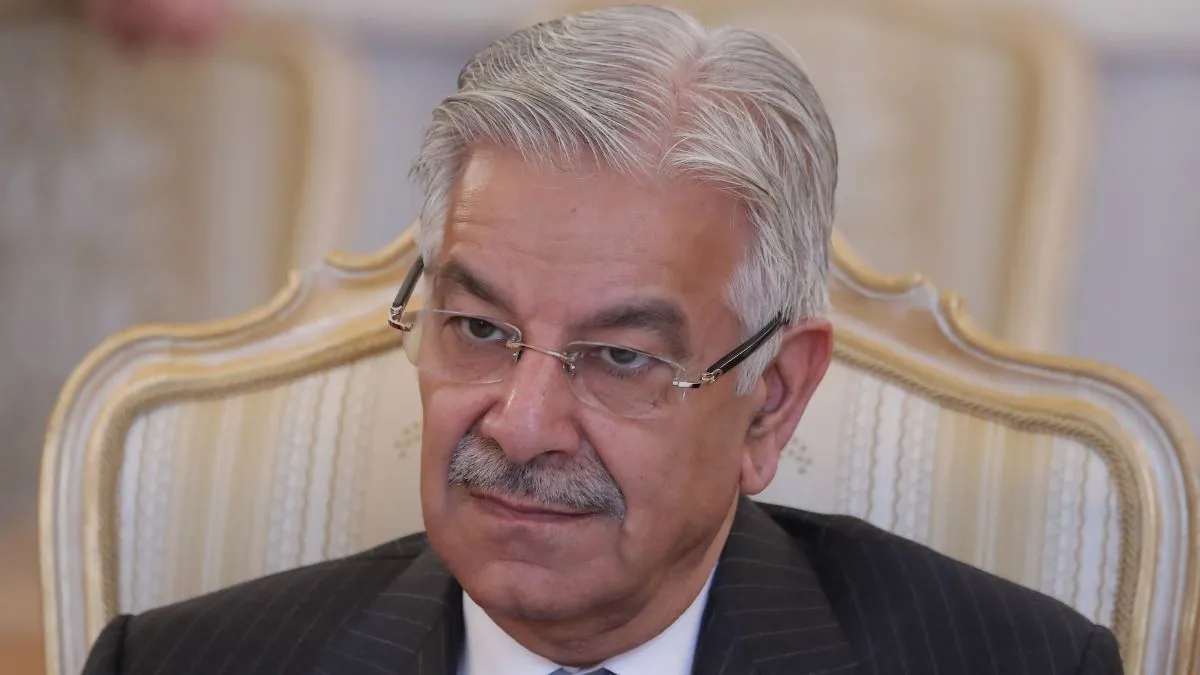- By Shivangi Sharma
- Wed, 08 Oct 2025 07:03 PM (IST)
- Source:JND
Pakistan’s Defence Minister Khawaja Asif has sparked controversy with remarks claiming that India was “never truly united” except under Mughal emperor Aurangzeb, a statement widely challenged by historians and political analysts. Speaking in an interview with Samaa TV, Asif also warned that the “chances of war with India are real,” reigniting tensions between the two neighbours.
“History shows that India was never one united nation, except briefly under Aurangzeb. Pakistan was created in the name of Allah. At home, we argue and compete. But in a fight with India, we come together,” Asif said in the television interview.
Asif's comments are made in the wake of increased tension between India and Pakistan. He reaffirmed the likelihood of another war, emphasising Islamabad's importance in being ready.“I do not want escalation, but the risks are real, and I am not denying that. If it comes to war, God willing, we will achieve a better result than before,” he stated.
His comments follow stern warnings from India’s Army Chief, General Manoj Dwivedi, who recently cautioned Pakistan against supporting state-sponsored terrorism. General Dwivedi said, “India is fully prepared this time. We will not show the restraint we exhibited during Operation Sindoor 1.0. This time, the action will be such that Pakistan will have to think whether it wants to exist geographically.”
Khawaja Asif's Bizarre Advice
Khawaja Asif, Pakistan’s Defence Minister, has a history of controversial and embarrassing statements on global platforms. Recently, he suggested that Pakistanis in flood-prone areas should "store" floodwater in containers and called the floods a "blessing." During Operation Sindoor, he falsely claimed that Pakistan had shot down Indian fighter jets, citing social media as evidence, exposing Pakistan’s misinformation efforts.
Historical Facts Contradict Claims
Asif's argument is counter to settled historical evidence. Many centuries prior to Aurangzeb, India had experienced serious political unification under the likes of Samudragupta of the Gupta dynasty and Harshavardhana of the Pushyabhuti dynasty. The Maurya Empire (322–185 BCE), among the most extensive subcontinent empires ever, had already brought huge areas of India under single control.
Even in the Mughal period, Emperor Akbar's rule was noted for relative stability, prosperity, and administrative consolidation, while Aurangzeb's regime was more marked by constant wars and revolts rather than true unity.
In contemporary times, India has been a stable, untroubled democracy for more than seven decades, as opposed to Pakistan, which has witnessed several military coups and internal fissures since gaining its independence.
ALSO READ: Pakistan To Get Higly Advanced US Air-to-Air Missiles After Sharif-Trump Meet | Know KEY Features

